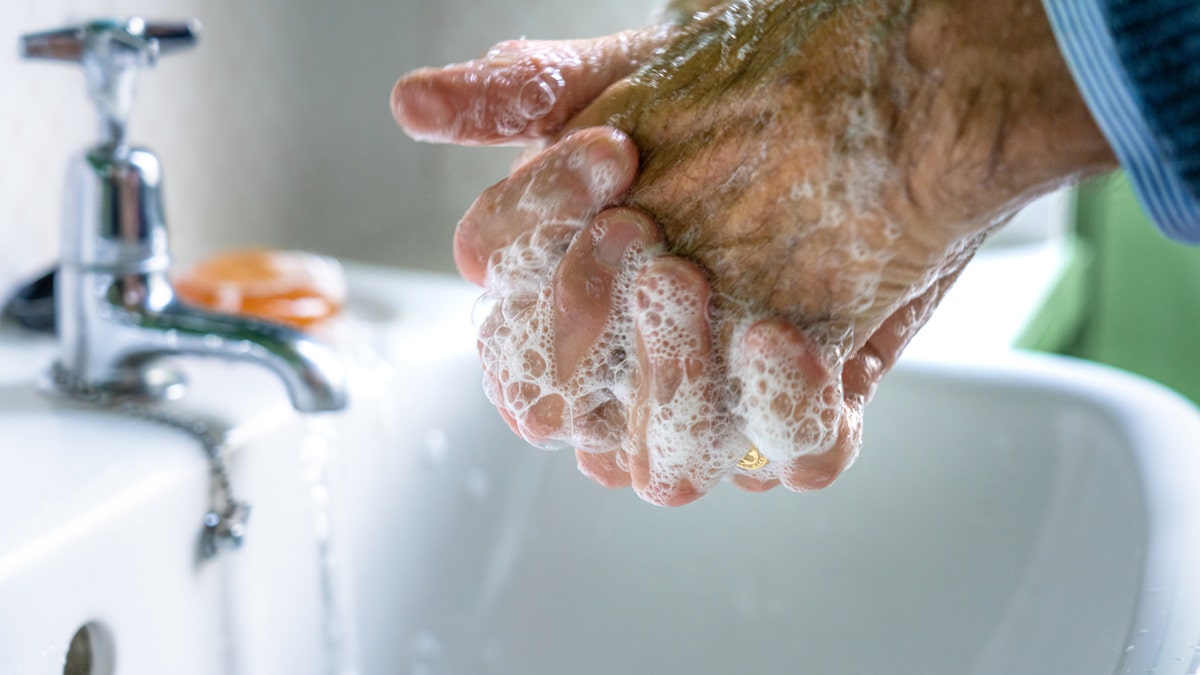Harris claims she would not take coronavirus vaccine suggested by Trump
Sen. Kamala Harris uses vice presidential debate as platform to double down on claims she would not take coronavirus vaccine if the president says the U.S. should; reaction from Fox News medical contributor Dr. Janette Nesheiwat.
Experts have stressed the importance of thorough hand-washing amid the coronavirus pandemic. But according to a new report from the Centers for Disease Control and Prevention (CDC), about 1 in 4 Americans are not properly following this practice.
Frequent hand-washing is important to help prevent the spread of SARS-CoV-2, the virus that causes COVID-19 disease, and other pathogens.
Men, young adults aged 18 to 24, and non-Hispanic White adults are most in need of hand hygiene reminders, the CDC said, adding that “particular focus should be placed on encouraging handwashing at important times such as before eating and after experiencing respiratory symptoms.”
WASHING HANDS KEY IN STOPPING CORONAVIRUS SPREAD: ARE YOU DOING IT CORRECTLY?
The CDC said little was known about how Americans’ hand-washing habits have transformed since pre-pandemic times. The agency compared data from Porter Novelli Public Services’ ConsumerStyles survey from October 2019 to June 2020, with 3,624 and 4,053 respondents, respectively; the panel study was said to be representative of the U.S. population.
Amid the pandemic, Americans were 2.3 times more likely to remember hand-washing after coughing, sneezing or blowing their nose, doubled their likelihood of remembering to wash hands before dining out, and were 1.7 times more likely to remember hand hygiene before having meals at home.

The agency said the findings echo previous work, which have showed that women and older adults perceive a high risk for themselves amid respiratory pandemics. (iStock)
“Despite these increases, however, fewer than 75% of respondents reported remembering to wash their hands after having respiratory symptoms, before eating in a restaurant, and before eating at home,” the CDC wrote, calling for more communication over the importance of hand-washing.
CLICK HERE FOR FULL CORONAVIRUS COVERAGE
Also, in both pre-pandemic and pandemic times, greater percentages of older adults, Hispanic and Black individuals, and women reported remembering hand-washing more often than younger people, men and White adults. Since minorities and older aged people are at higher risk of severe COVID-19, the CDC emphasized preventative measures in these groups.
The agency said the findings echo previous work, which has shown that older adults and women perceive a higher risk for themselves from COVID-19 and other respiratory pandemics, respectively.
Since the data was self-reported, the agency noted possible flaws due to social desirability bias, among other limitations.
The report comes as new research out of Japan suggests the novel virus can live on human skin for up to nine hours, bolstering the importance of good hand hygiene.
In a study published in the journal Clinical Infectious Diseases on Oct. 3, researchers from the Kyoto Prefectural University of Medicine found that SARS-CoV-2 outlived the influenza A virus (IAV) on human skin, which remained viable for about two hours.
“The 9-[hour] survival of SARS-CoV-2 on human skin may increase the risk of contact transmission in comparison with IAV, thus accelerating the pandemic. Proper hand hygiene is important to prevent the spread of SARS-CoV-2 infection,” the researchers concluded.
Fox News's Madeline Farber contributed to this report.

